Event Overview
Major countries around the world are working on rapid improvement of administrative services through digitalization, using emerging technologies such as artificial intelligence (AI), Internet-of-Things (IoT), and cloud computing. In Japan, the Cabinet decided the “Declaration to Be the World’s Most Advanced IT Nation: Basic Plan for the Advancement of Public and Private Sector Data Utilization” in June 2016. The Declaration signals Japan’s commitment to significant reform of the system for delivering social services and the digital transformation of rural areas through broader adoption of information technology (IT) and service. The Declaration’s goal is to achieve 100% digitalization of administrative services throughout the country. Also, the Government of Japan announced the “Cloud-by-Default Principle” which states that cloud computing solutions should be the first option for government information systems. The Digital First Bill (Digital Procedure Bill) which encourages the use of electronic applications as the general procedure for conducting administrative tasks by government agencies has also been developed, replacing paper forms where possible. Local governments are working to advance the quality of citizen services using AI and IoT. All these factors are accelerating the nation-wide transformation to new systems for delivering social services and responding to the digital era.
While there are many positive developments, the Government of Japan also faces challenges in the implementation of these goals. Many of the challenges arise from concerns about information security, the effects on workflow, and difficulty of attracting and retaining adequately trained personnel. In this respect, public-private sector collaboration adopting innovative approaches will be increasingly important to advance the effective implementation of digital government in Japan.
In this event, we will view international trends in how governments are driving secure and effective use of IT and services to improve government services and functions. We will introduce case studies of local governments pro-actively working on digitalization, discuss efforts undertaken by governments and industries, and identify issues that have emerged in the process. Through these learnings, we will explore and discuss ways to facilitate the digital government transformation of Japan.
Event Details
-
Date
April 16, 2019
-
Time
10:00AM -12:30 PM (venue open: 9:30AM)
-
Location
International Conference Room
First Members’ Office Bldg. of the House of Representatives
(Address: 2-2-1 Nagatacho, Chiyoda-ku, Tokyo) -
Organizer
BSA | The Software Alliance (BSA)
-
Supporting/Partner Organizations

International Academy of CIO Japan
The Computer Software Association of Japan (CSAJ)
Japan Information Technology Services Industry Association (JISA)
Japan Electronics and Information Technology Industries Association (JEITA)
Keidanren (Japan Business Federation) -
Fee
Free of Charge (pre-registration required)
Program
See agenda below.
AGENDA
The 7th BSA Conference
Th Future and Global Development of Digital Government:
Working Towards Digital First Implementation
simultaneous interpretation provided
| 10:00 | Opening Remarks: Jared Ragland Senior Director, Policy – APAC BSA | The Software Alliance |
| Part 1 Efforts Undertaken in Public Sector | |
| 10:10 | Takuya Hirai Minister in Charge of Information Technology Policy Minister of State for “Cool Japan” Strategy, Intellectual Property Strategy, Science and Technology Policy, and Space Policy ”Society-Wide Digitalization and the Future of Japan After Digital Transformation” |
| 10:20 | Fumiaki Kobayashi Member of House of Representatives Vice Chair of Special Committee on IT Strategy, Liberal Democratic Party |
| 10:35 | Shogo Matsuda Director, Local Governments ICT Promotion Office, Ministry of Internal Affairs and Communications “The Future and Digital Technology (AI, RPA, IoT, Open Data) of Local Governments” |
| 10:50 | Toshihiko Yokoo Mayor of Taku City, Saga Prefecture Advisor of Japan Association of City Mayors “Local Government Management and Digital Innovation” |
| 11:05 | Seiji Takahashi Technical Councilor, Local Administration Division, Information Policy Section, General Affairs Bureau, Kumamoto City |
| 11:20 | Break |
| Part 2 The Status, Challenges and Outlook of Digital Implementation | |
| 11:30 | Seow Hiong Goh Executive Director, Global Policy and Government Affairs – APAC Cisco Systems “Enabling Government Digital Strategy” |
| 11:40 | Mihoko Nishijima Senior Manager, Government Relations and Public Policy Adobe Systems “Digital Government Driven by Citizen Experience” |
| 11:50 | Roundtable Discussion “Challenges and Future Outlook of Digital Transformation” Introduction of “International D-Government Rankings / Institute of of D-Government at Waseda University” by Dr. Naoko Iwasaki President, International Academy of CIO Professor, Waseda University Participants of discussion: representatives from central/local governments, academia,industry and etc. |
Note: Speakers and program may change unannounced.
Entry
Registration for the conference has been closed as we have reached the maximum number of registrations.
*The personal information provided for the registration of this conference will be used for (1) the invitation and operation of seminars and events (2) for entry and departure of seminar and event facilities (3) handling of various inquiries. For the handling of personal information provided upon the event entry please refer to Privacy Policy of BSA | The Software Alliance.
Speaker Bios
-
Jared William Ragland
Senior Director, Policy — APAC
BSA | The Software Alliance
-

Jared Ragland serves as Senior Director, Policy — APAC at BSA | The Software Alliance. Working with BSA members, he develops BSA’s international strategies to open markets and promote innovation and digital trade in important foreign markets in the Asia-Pacific region, including China, India, Indonesia, Japan, Korea, and Vietnam, among others. Before joining BSA, Ragland served as the US Patent and Trademark Office (USPTO) Intellectual Property Rights (IPR) Attaché in the Shanghai Consulate General. Before that, he served as Director in the Office of Intellectual Property and Innovation in the Office of the US Trade Representative. From September 2005 to November 2007, Ragland served as the Science Policy Advisor to the U.S. Ambassador to APEC in the State Department’s Office of Economic Policy in the Bureau of East Asian and Pacific Affairs. Ragland received a Doctorate in Molecular and Cellular Biology from the University of Washington in 2004, a Bachelor of Science in Biochemistry, and a Bachelor of Arts with a double major in East Asian Studies and Anthropology from the University of Arizona. He is based in BSA’s s Singapore office.
- Takuya Hirai
Minister in Charge of Information Technology Policy
Minister of State for “Cool Japan” Strategy, Intellectual Property Strategy, Science and Technology Policy, and Space Policy
-
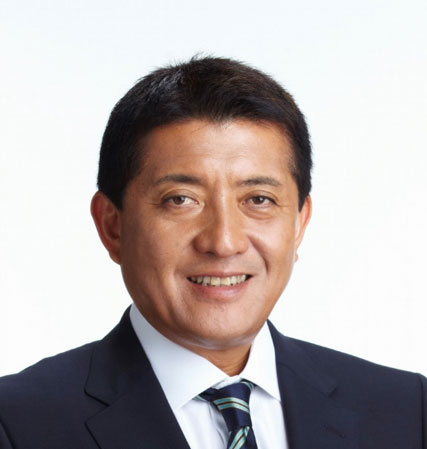
Hirai was born in Takamatsu-city, Kagawa prefecture in 1958. After graduating from English Studies at Sophia University, he started his career at Dentsu, and served as the President of Nishi Nihon Broadcasting prior to the start of his political career. He started his political career in 2000 by getting successfully elected at the 42nd House of Representatives and in seven consecutive elections since then. He has held distinguished positions including Director of Economy, Trade and Industry Division and General Affairs Division, Deputy Chairperson of Policy Research Council at Liberal Democratic Party (LPD), as well as Parliamentary Secretary of Cabinet Office, Vice-Minister of Ministry of Land, Infrastructure Transport, and Chair of Standing Committee on Cabinet. As the Chairman of Special Mission Committee on IT Strategy, he led IT policies including compiling the proposal “Nippon, the Data Nation”. In October 2018, under the fourth Cabinet of Prime Minister Shinzo Abe, he became the Minister in charge of Information Technology Policy, Minister of State for “Cool Japan” Strategy, Intellectual Property Strategy, Science and Technology Policy, and Space Policy.
- Fumiaki Kobayashi
Member of House of Representatives, Vice Chair of Special Committee on IT Strategy, Liberal Democratic Party
-
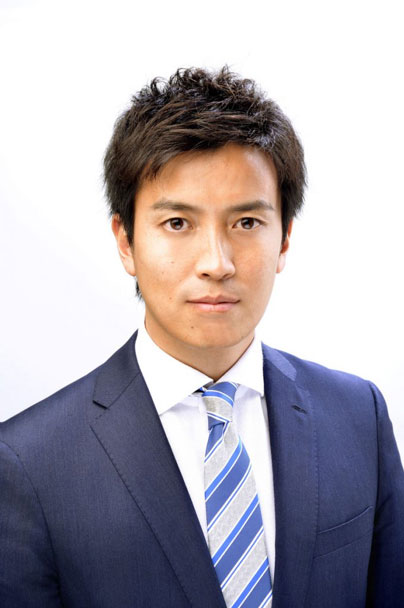
Originally from Fukuyama city in Hiroshima prefecture, Kobayashi is in the House of Representatives (elected three times) for the Liberal Democratic Party (LDP). After graduating from Faculty of Science and Technology of Sophia University in Japan, he entered NTT Docomo Inc. In 2012, he won his first seat at House of Representatives when he ran for the election of the House through LDP’s open call for candidates. Since then, he has undertaken positions at LDP as the Director of Youth Division, Chair of Headquarter for Promoting Administrative Reform, and during the reshuffled third Cabinet and the fourth Cabinet of Prime Minster Shinzo Abe, he served as the Parliamentary Vice-Minister of Ministry of Internal Affairs and Communications (MIC) as well as Parliamentary Secretary of Cabinet Office, focusing on regulatory reform of radio, broadcast, and telecommunication, as well as development of policies for Social Security and Tax Number System (‘My Number’ system). He works to create a society that enables more fairness and efficiency through social implementation of technology, while continuing to make policy recommendation on marine policies, particularly on those that enable sustainable development of fisheries industry.
- Shogo Matsuda
Director, Local Governments ICT Promotion Office,
Ministry of Internal Affairs and Communications
-
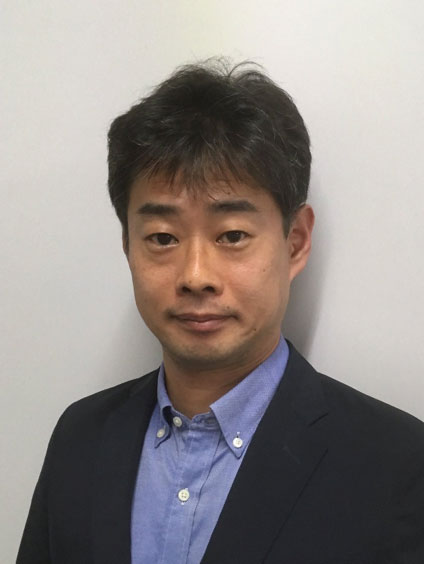
After graduating from the Faculty of Law, Osaka University, Matsuda joined Ministry of Posts and Telecommunications in 1995. From 2001, he served as the Director of Information Policy in Okayama city for three years, and later, worked on competition policy of mobile phones, rule-making of platform industry and support of cloud adoption in rural area at Ministry of Internal Affairs and Communications. From 2015, he was responsible for facilitating public-private sector data utilization at the National Strategy Office of IT, Cabinet Secretariat. He assumed his current position in July 2017 and has been supporting the utilization of AI, RPA, and IoT in local governments.
- Toshihiko Yokoo
Mayor of Taku City, Saga Prefecture
Advisor of Japan Association of City Mayors
-
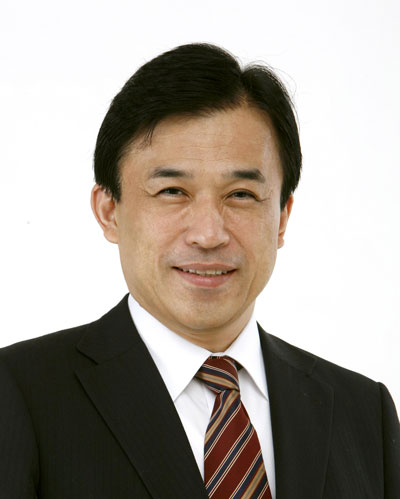
“ICT stands for I Create Tomorrow”. Yokoo was born in 1956 and graduated from Keio University (While at Keio, he also studied at University of Victoria in Canada as a public-sponsored student). He was the member of inaugural class of Matsushita Institute of Government and Management. With the vision of ‘Mayor functioning as CEO’, he became the Mayor of Taku-city in Saga prefecture in 1997. He currently serves as the advisor of Japan Association of City Mayors, after experiencing the position of Vice Chair. He has also served as the Council for Decentralization Reform committee member under the Cabinet Office, Life-long Learning Subcommittee temporary committee member of Central Council for Education under Ministry of Education, Culture, Sports, Science and Technology, and Chair of National Council of Municipalities for Life-long Learning. He currently serves as the Chair of National Mayor Council for ICT Education, Co-Chair of Local IoT Network of Cross-Sector Supporters, member of Taskforce for Promotion of Local IoT Implementation under Ministry of Internal Affairs and Communications, committee member of Consortium for Future Learning, Chair of National Council for Wide Area Union of Medical Care for Latter-Stage Elderly, Chair of Association of Mayors to Accelerate Reform, Chair of Council to Accelerate MyNumber, Medical Insurance Subcommittee member of Council for Social Insurance under Ministry of Health, Labor and Welfare. His personal beliefs is “Believing in our mission of like,accomplish what we have to do”.
-
Seiji Takahashi
Technical Councilor, Local Administration Division, Information Policy Section, General Affairs Bureau, Kumamoto City
-
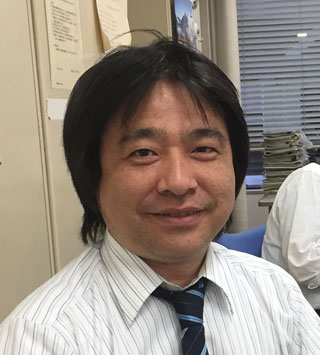
Takahashi joined Kumamoto city government office in 1995. After working in the Kumamoto south water purification center, the Information Planning Division, the industrial cultural hall and the water operation division, he was appointed the Administrative Management Department, General Affairs Bureau, and is in charge of the network in the office, the information system installed in all office, the information security, etc. At the time of Kumamoto earthquake in April 2016, he worked to receive the support by ICT technology.
-
Seow Hiong Goh
Executive Director, Global Policy & Government Affairs, Asia Pacific
Cisco Systems
-
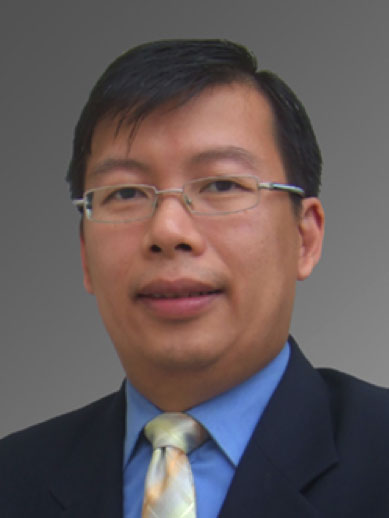
Seow Hiong Goh has been in the ICT industry for the past 30 years – 10 years in government, and 20 years in the private sector working on ICT policy issues with governments across the Asia Pacific region. At Cisco, he advises government officials and regulators on a range of ICT-related policy issues, and assists governments in adopting policies and regulations that foster investment, innovation, growth and adoption of advanced ICT technologies and services. His current focus areas include advising on national broadband strategies and deployment, convergence policy, cyber-security and e-government.
-
Mihoko Nishijima
Sr. Manager Government Relations and Public Policy,
Adobe Systems
-
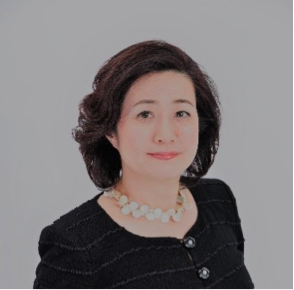
Nishijima joined Adobe in 2013 and is responsible for public policy mainly in the fields of e-government, cyber security, education policy. Prior to Adobe, she worked at Microsoft over 10 years engaging education policy including human resource development for computer science and ICT use in Education. She promoted these initiatives in collaboration with industry, government and academia. Prior to Microsoft, she was a program specialist at ACCU (Asia / Pacific Cultural Center for UNESCO) and was responsible for preservation and promotion programs for intangible cultural heritage in the Asia-Pacific region and promoted international understanding education in collaboration with Asian/Pacific countries.
